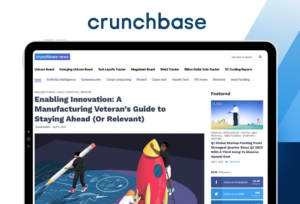What Are the Hidden Costs of ERP Implementation?

When it comes to ERPs, upfront budgeting is a critical component to not only ensuring that you get exactly what your business needs, but also that you can afford the costs in the short- and long-term as well. That is easy when it comes to the direct costs of ERP implementation because those are relatively straightforward. They include components such as hardware, operating systems, software licensing, and add-on applications. These costs are well-known upfront, but they will fluctuate to different degrees depending on the complexity of your ERP implementation and the size of your business. When you work with Decision Resources, we make sure to outline all of those costs in a comprehensive quote so that you can avoid any surprises.
Indirect costs are a little different, and without a trusted partner to shine a light on them, they tend to stay under-the-radar. That is until it is too late and you are facing a bill, or you have a budget to balance. Not an ideal situation! Before this happens to you, consider a few of the following scenarios, which can help you account for some of the indirect costs of your ERP.
One of the most significant benefits of ERP systems is that they are fully customizable to your business needs, functions, and processes. You’ll likely want to make some customizations to your ERP, so this cost will vary depending on how much you need and want to make your ERP uniquely yours.
- Once you’ve
considered the ins and outs of your ERP, consider how you’ll implement training
for your staff. Have you adequately and comprehensively budgeted for the
initial training and implementation costs? Also, have you considered the costs,
as well as the benefits associated with long-term, ongoing training,
development, and support for your staff after the initial phases? Account for a
comprehensive training program that includes everyone in every department
working with or expected to work with the ERP. Now think about whether your
business has multiple locations or work sites. Some staff may need to travel
for initial and ongoing training and check-ins, which means additional
expenses. - Think about your
current and future staffing needs. Will an ERP enable or require you to hire
more staff, consultants, or contractors, either now or in the future? These
human resource costs can and will add up. - And finally, think
about the adjustment process following implementation. In thoroughly learning
and adjusting to the ERP, will your staff require extra hours or overtime?
Expect to budget for ongoing testing and re-engineering of ERP processes.
Many of the indirect ERP costs will span the lifetime of your ERP, and they are critical components in building and maintaining an ERP system that will serve your business, your teams, and your customers over time. That is why it is so helpful to engage with a trusted partner, one that can help you make the most of this investment, to explain the exact costs and value, and to help you plan comprehensively for the components and fees that will set your business, your employees, and your customers up for success long-term.
With more than 40 years of successful ERP implementations, our ERP experts are ready with a realistic and transparent approach to making your business more productive and more profitable than ever. Contact us today!
Similar Blogs

Decision Resources Featured on Crunchbase

Chips, drugs, and steel — how to prepare for Trump tariffs





